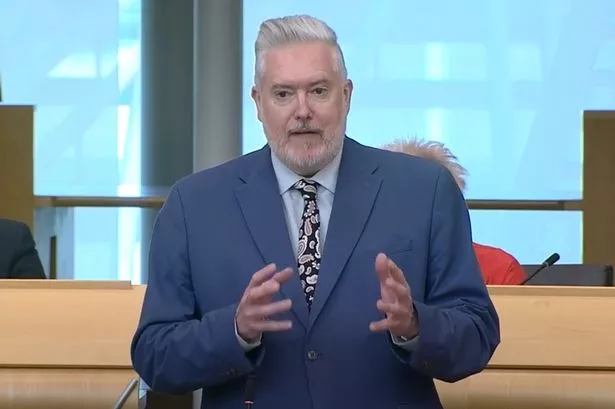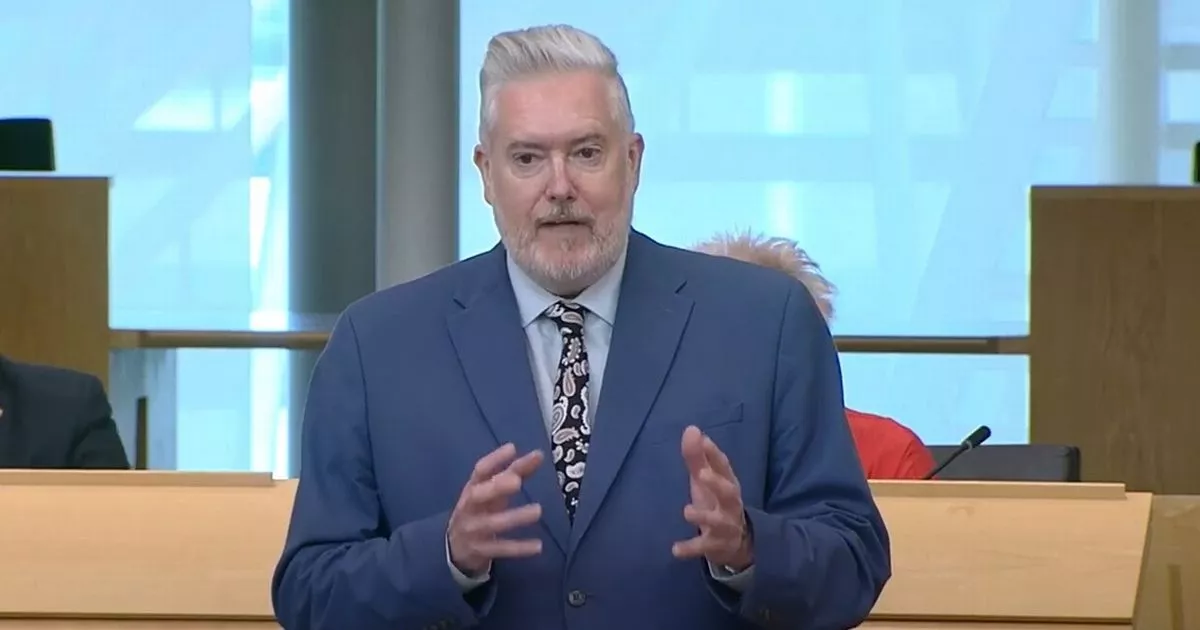George Adam – whose wife Stacey lives with secondary progressive multiple sclerosis – delivered an emotional speech during the Assisted Dying Bill debate.
04:30, 15 May 2025Updated 07:39, 15 May 2025
 George Adam MSP during his speech to the Scottish Parliament(Image: supplied)
George Adam MSP during his speech to the Scottish Parliament(Image: supplied)
The Assisted Dying Bill has passed the first hurdle in the Scottish Parliament with the backing of an emotional George Adam.
The MSP for Paisley – whose wife Stacey lives with secondary progressive multiple sclerosis – said she deserves the right to “choose how her life ends”.
The bill had been tabled by Liberal Democrat MSP Liam McArthur, who said people diagnosed with a terminal illness should have the right to a dignified and peaceful death.
Those in favour of the bill said it sought to ease suffering for dying people, while those who voted against it said they had grave concerns that the most vulnerable in society may be pressured into ending their lives early.
For George however the issue is “deeply personal” given his wife’s fragile health.
While Stacey’s MS, asthma and osteoporosis are not considered terminal, he said the couple have been forced to think about how they could lead to a serious terminal event in later life.
“We know the road ahead could get harder,” he told a packed Scottish Parliament. “Let me be clear, on their own many of Stacey’s conditions won’t qualify under this bill.
“MS isn’t classified as terminal, nor is asthma, nor is osteoporosis, but together in someone with secondary progressive MS and a weakened immune system, these conditions could lead to a serious terminal event in later life.
“That’s why this bill matters because it recognises that illness isn’t straight forward, that someone can live with chronic conditions for years and then reach a point where death is close and the suffering is great.
“That’s why Stacey and I support Liam McArthur’s bill, not because it’s about us now, but because one day it might be.
“We hope that time never comes but if it does, if the suffering becomes unbearable, Stacey should have that right to choose how her life ends with dignity, with compassion and surrounded by those who love her.”
Explaining the bill sought to not only empower those with incurable illnesses, George said the bill would enable families to fulfil the dying wishes of their loved ones at a time when they too are under immeasurable strain.
Speaking as Stacey sat in the public gallery, he added: “The truth is I don’t know if I would be strong enough to let go. The thought of life without her is unbearable. I know that’s selfish but I’m a human being.
“As the song goes, ‘she’s every thought, she’s everything, she’s every song I ever sing’. I don’t want to make that decision, I want Stacey to be able to decide and that’s what this bill is about.
“For Stacey, for me, for thousands of other families, it’s about having that choice of a peaceful, dignified end if and when that comes.
“I support this bill not just as a politician but as a husband because my wife has shaped by life, my career, my values and I owe her to stand here today and say yes, we trust people to make the most personal decision of all, yes we trust them to know when enough is enough.”
Recognising the concerns around coercion, pressure and early death, George said he was reassured by a number of safeguards within the bill including: Two doctors must agree the person is terminally ill, the person must be mentally capable, there is a waiting period and there are multiple steps to confirm it’s informed and voluntary.
Don’t miss the latest Renfrewshire headlines – you can sign up to our free daily newsletter here
